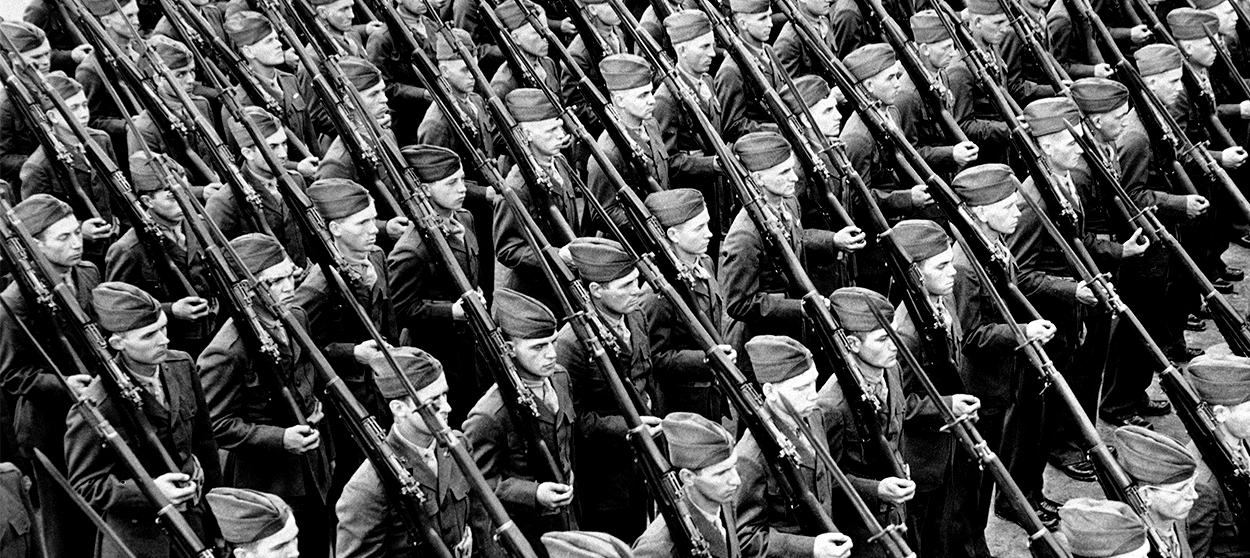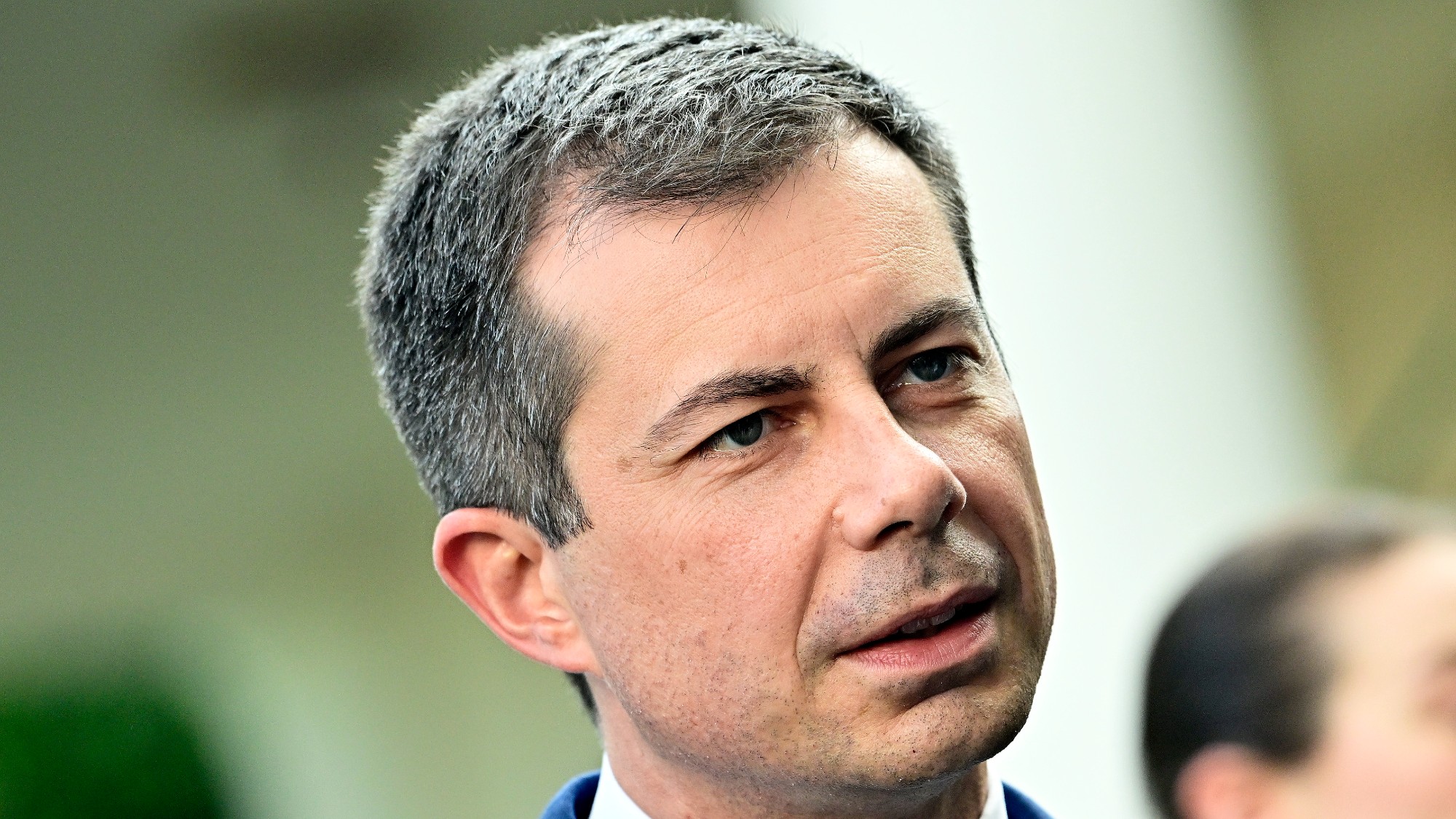Mandatory national service is a terrible idea
Why domesticating the draft won't build meaningful community


A free daily email with the biggest news stories of the day – and the best features from TheWeek.com
You are now subscribed
Your newsletter sign-up was successful
Every few years, some politician too old to be personally affected by his own proposal trots out a new pitch for mandatory (or, at least, strongly encouraged) national service for America's youth. In 2002, it was Rep. Charles Rangel (D-N.Y.); more recently, John McCain and Hillary Clinton outlined plans for service schemes they described less as compulsion and more as opportunity.
Now presidential candidate and South Bend, Indiana, Mayor Pete Buttigieg has taken up the cause. He liked his time in the military, Buttigieg told MSNBC's Rachel Maddow this week, especially for how it connected him to "very different Americans," people with "different politics, different generation, different racially, different regionally." And he would like more Americans to experience that same sort of "social cohesion" without having to go to war.
"One thing we could do ... would be to make it, if not legally obligatory, then certainly a social norm that anybody after they're 18 spends a year in national service," Buttigieg said, adding that this is "one of the ideas that everybody likes."
The Week
Escape your echo chamber. Get the facts behind the news, plus analysis from multiple perspectives.

Sign up for The Week's Free Newsletters
From our morning news briefing to a weekly Good News Newsletter, get the best of The Week delivered directly to your inbox.
From our morning news briefing to a weekly Good News Newsletter, get the best of The Week delivered directly to your inbox.
It's really not. It's an idea liked by people who will never personally be conscripted. It's an idea liked by people who haven't grappled with the implications of giving the state the right to take a year of your life. And it's especially an idea liked by people who haven't thought through the realistic implications of having a few million young people available to do Washington's bidding, a mental exercise that should be exceedingly easy — and troublesome — in what Buttigieg is correct to call a fractured era.
First, the question of age. "If national service is so good," notes The Economist, "everyone should do it." But the proposal is never thus universalized. It's always limited to young adults, which is an odd thing if the motivation, as Buttigieg says, is not military defense — where age may be relevant for its link to physical fitness — but renewed social cohesion. Don't older generations need to meet "very different Americans," too?
This puzzle isn't difficult to solve. Older adults "conclude, reasonably enough, that the benefit to society is not worth the cost to their personal liberty." Thus polling finds support for mandatory service is related to age in a perfect inverse: The older you are, the more likely you are to endorse Buttigieg's plan — which is to say, the safer you are from losing a year of your youth to the federal government, the more likely you are to say other people should lose a year of theirs. This difference is not the product of wisdom. It is selfishness cloaked in a costless pretense of civic virtue.
As for that cost to personal liberty, Buttigieg's focus on domestic over military service only negates some of the ethical dilemma for potential conscripts. All of the offense to the rights of the individual inherent to the draft remain. A service requirement doesn't have to force anyone to go to war to be an illegitimate seizure of our time and freedom to use it as we choose.
A free daily email with the biggest news stories of the day – and the best features from TheWeek.com
I don't often find myself quoting former President Ronald Reagan, but he was entirely correct in condemning compulsory national service for its "assumption that your kids belong to the state. If we buy that assumption then it is for the state — not for parents, the community, the religious institutions, or teachers — to decide who shall have what values and who shall do what work, when, where, and how in our society."
That question of what work should be done by our youthful conscripts is equally worth consideration. It does not take much imagination to realize what national service kids would be doing right now if such a program existed. In our present state of so-called national emergency, they would almost certainly be sent to southern Texas for construction work, and President Trump's border wall construction would be proceeding at a rather faster pace than it is now.
If the wall doesn't bother you, it should not be difficult to imagine a presidential project that would. What might former President Barack Obama have done with the labor of several million young Americans at his disposal? Or former President George W. Bush? For anyone who really wants to involve Washington in their community service, more targeted options without such risk of executive misuse — like the Peace Corps, AmeriCorps, VISTA, and USA Freedom Corps — already abound.
This is not to say there would be no positive effects of such a scheme. Social cohesion is a real concern, and I share Buttigieg's desire to revive it — though I'd prefer to do so unentangled from patriotism and fostered at a far more local and tangible scale. But we will not reinvigorate meaningful community by domesticating the draft. Mandatory service would be a pale, nationalized substitute for the real work people of all ages can and should do in our communities right now.
Bonnie Kristian was a deputy editor and acting editor-in-chief of TheWeek.com. She is a columnist at Christianity Today and author of Untrustworthy: The Knowledge Crisis Breaking Our Brains, Polluting Our Politics, and Corrupting Christian Community (forthcoming 2022) and A Flexible Faith: Rethinking What It Means to Follow Jesus Today (2018). Her writing has also appeared at Time Magazine, CNN, USA Today, Newsweek, the Los Angeles Times, and The American Conservative, among other outlets.
-
 Political cartoons for February 19
Political cartoons for February 19Cartoons Thursday’s political cartoons include a suspicious package, a piece of the cake, and more
-
 The Gallivant: style and charm steps from Camber Sands
The Gallivant: style and charm steps from Camber SandsThe Week Recommends Nestled behind the dunes, this luxury hotel is a great place to hunker down and get cosy
-
 The President’s Cake: ‘sweet tragedy’ about a little girl on a baking mission in Iraq
The President’s Cake: ‘sweet tragedy’ about a little girl on a baking mission in IraqThe Week Recommends Charming debut from Hasan Hadi is filled with ‘vivid characters’
-
 The billionaires’ wealth tax: a catastrophe for California?
The billionaires’ wealth tax: a catastrophe for California?Talking Point Peter Thiel and Larry Page preparing to change state residency
-
 Bari Weiss’ ‘60 Minutes’ scandal is about more than one report
Bari Weiss’ ‘60 Minutes’ scandal is about more than one reportIN THE SPOTLIGHT By blocking an approved segment on a controversial prison holding US deportees in El Salvador, the editor-in-chief of CBS News has become the main story
-
 Has Zohran Mamdani shown the Democrats how to win again?
Has Zohran Mamdani shown the Democrats how to win again?Today’s Big Question New York City mayoral election touted as victory for left-wing populists but moderate centrist wins elsewhere present more complex path for Democratic Party
-
 Millions turn out for anti-Trump ‘No Kings’ rallies
Millions turn out for anti-Trump ‘No Kings’ ralliesSpeed Read An estimated 7 million people participated, 2 million more than at the first ‘No Kings’ protest in June
-
 Ghislaine Maxwell: angling for a Trump pardon
Ghislaine Maxwell: angling for a Trump pardonTalking Point Convicted sex trafficker's testimony could shed new light on president's links to Jeffrey Epstein
-
 The last words and final moments of 40 presidents
The last words and final moments of 40 presidentsThe Explainer Some are eloquent quotes worthy of the holders of the highest office in the nation, and others... aren't
-
 13 potential 2028 presidential candidates for both major parties
13 potential 2028 presidential candidates for both major partiesIn Depth A rare open primary for both parties has a large number of people considering a run for president
-
 The JFK files: the truth at last?
The JFK files: the truth at last?In The Spotlight More than 64,000 previously classified documents relating the 1963 assassination of John F. Kennedy have been released by the Trump administration
